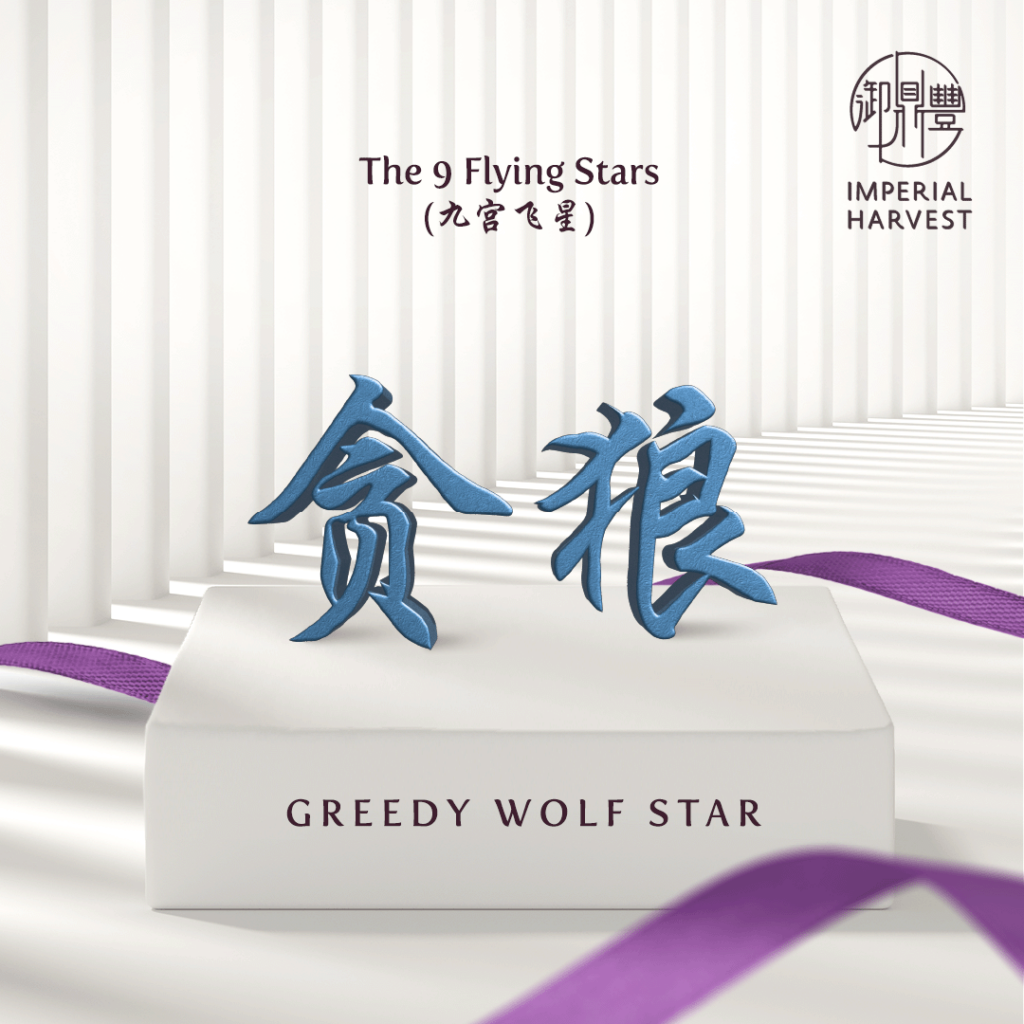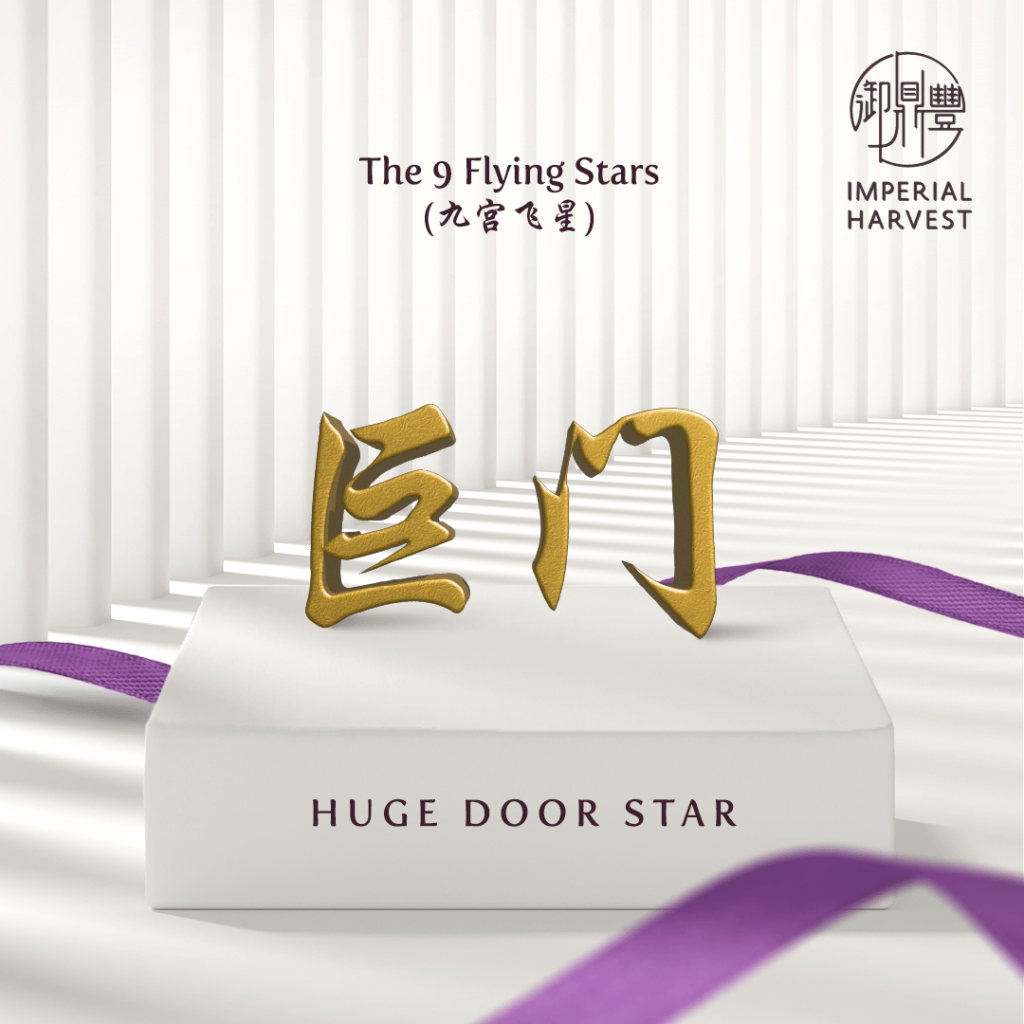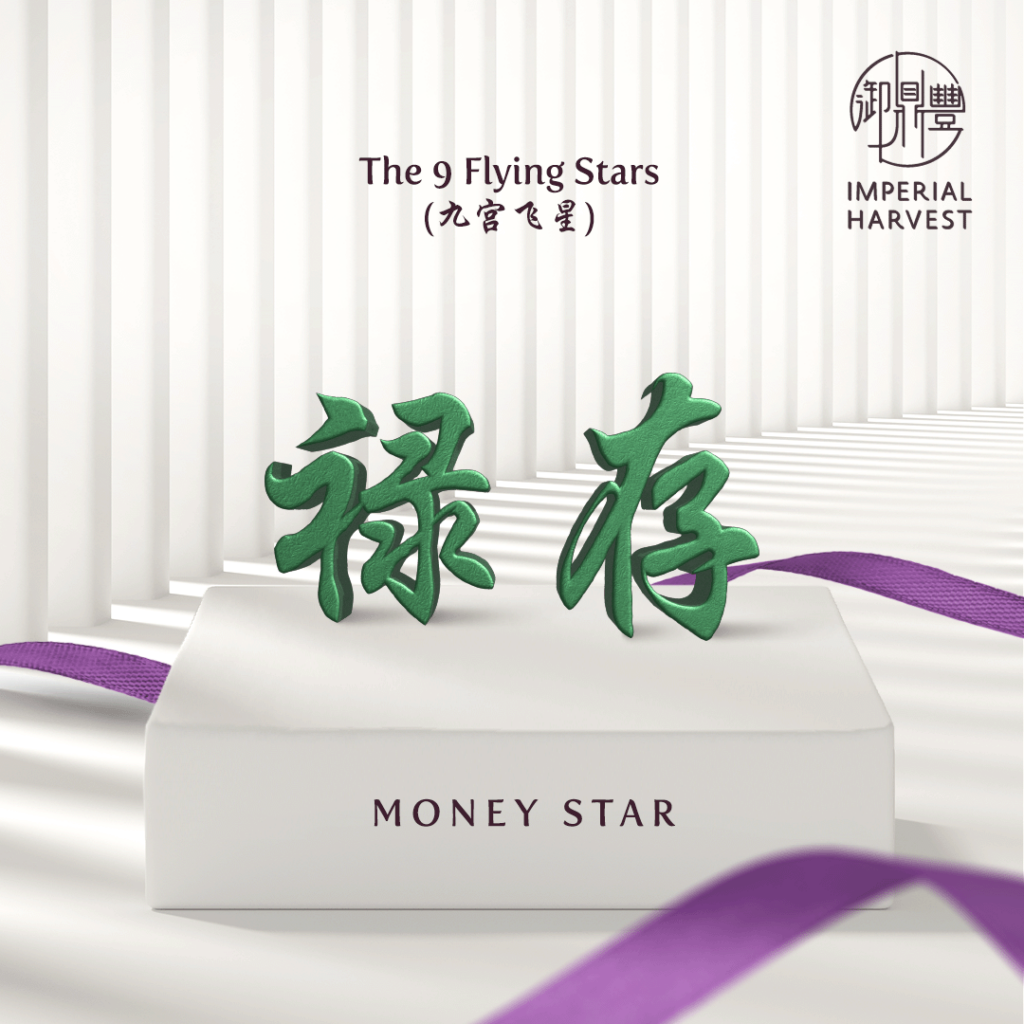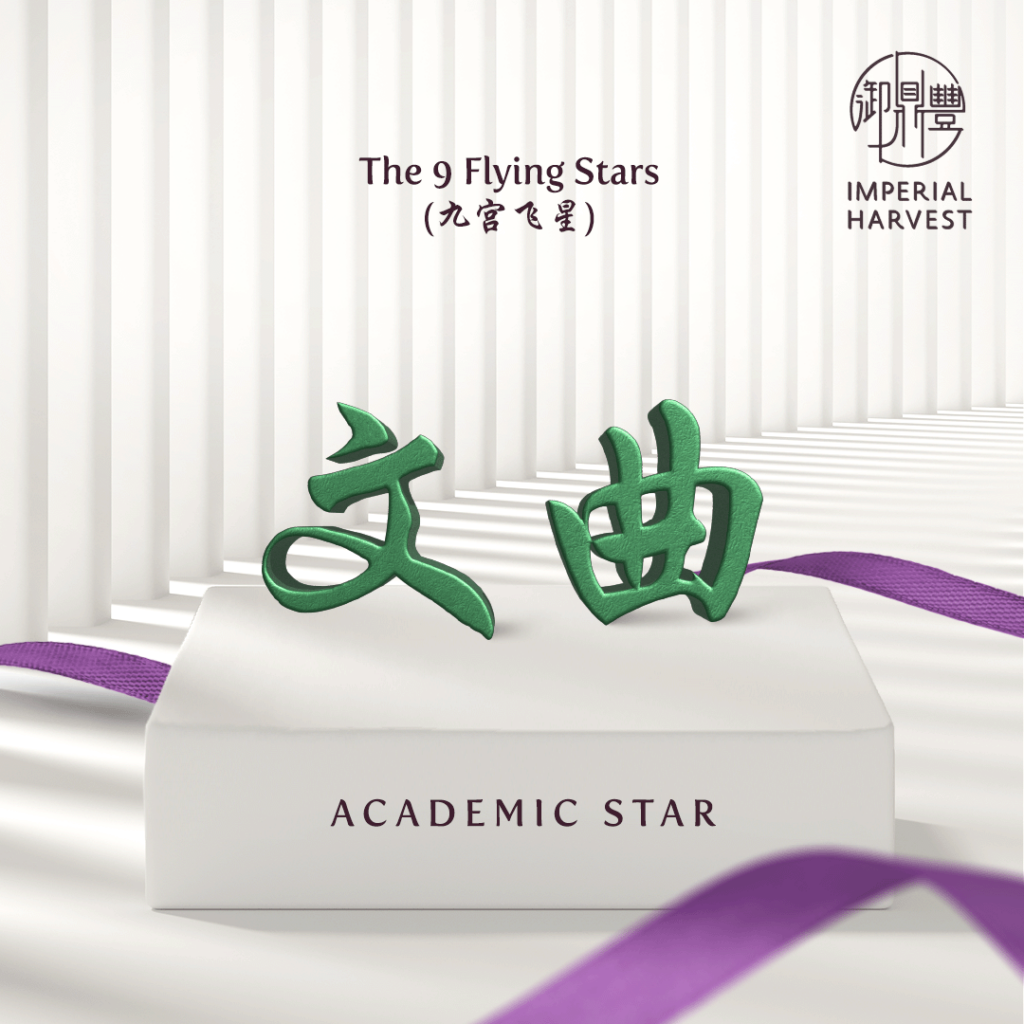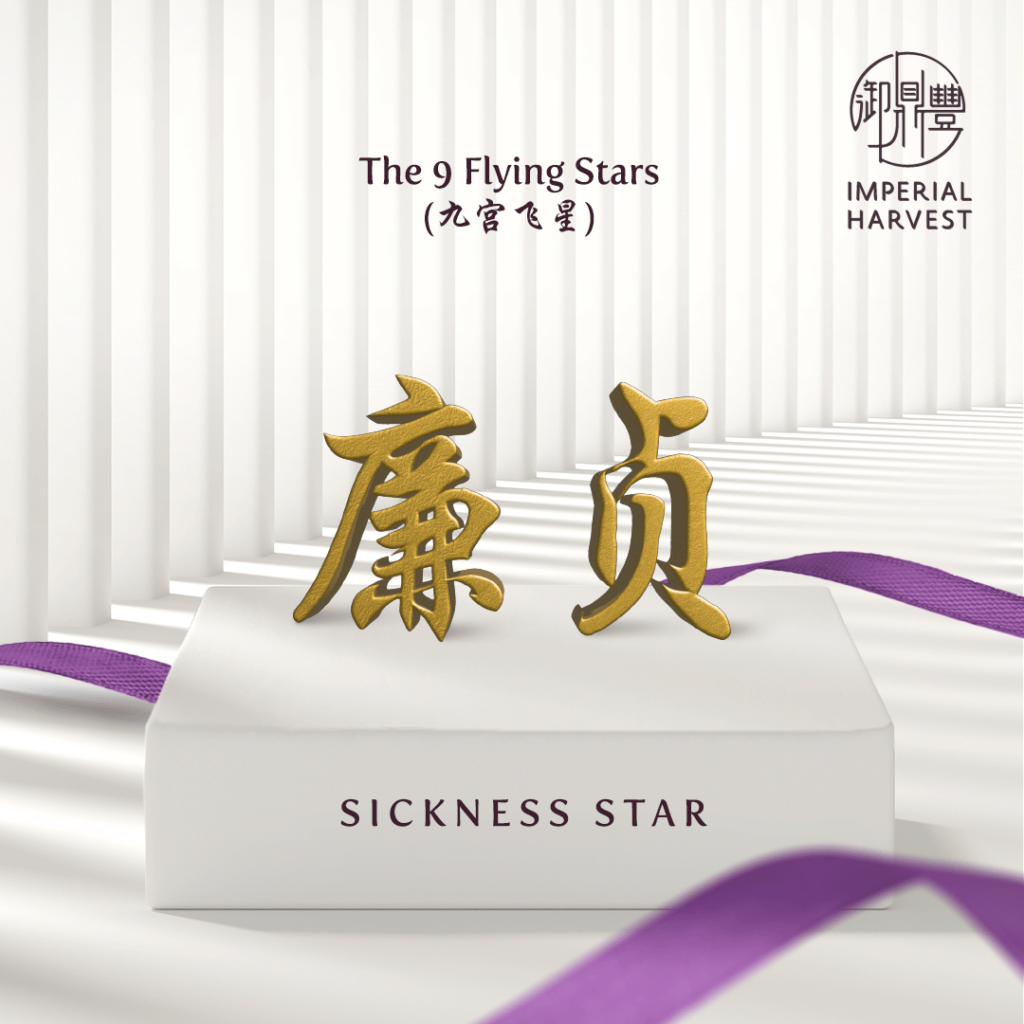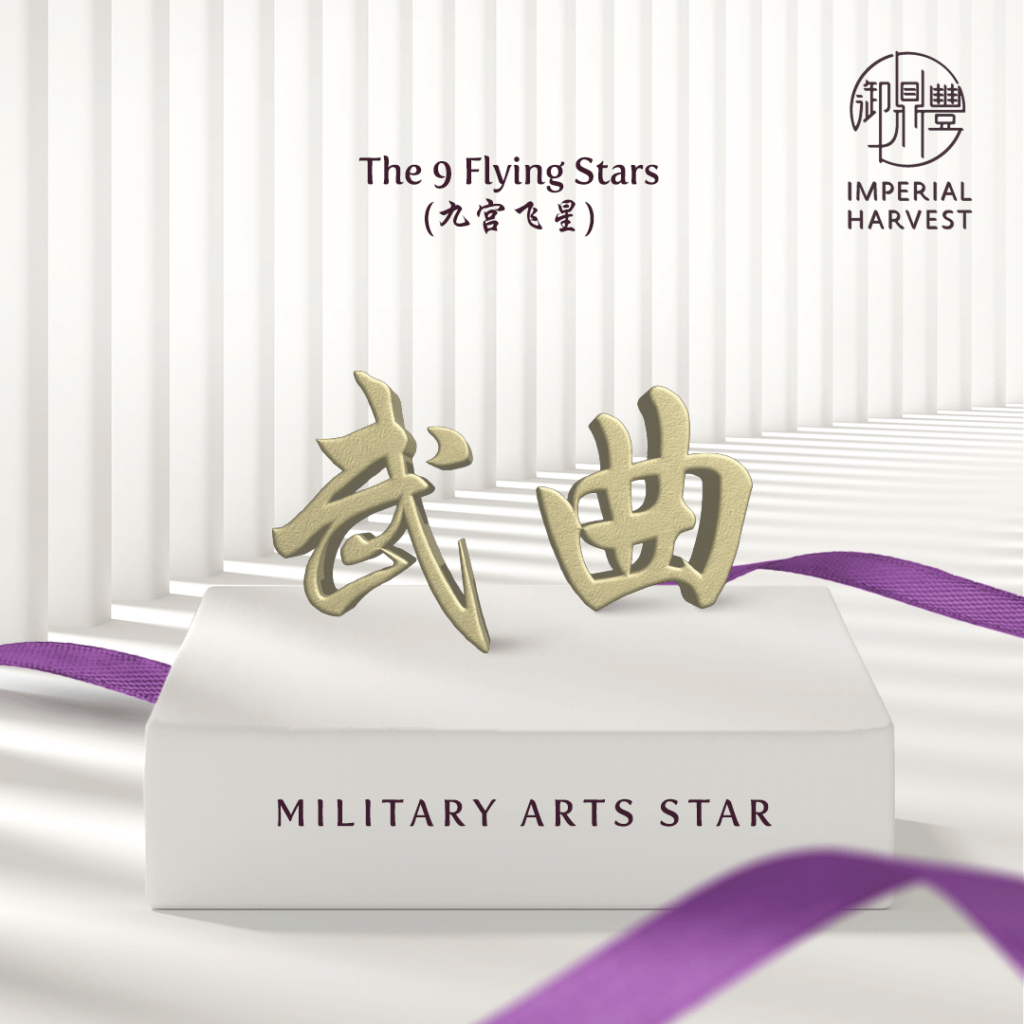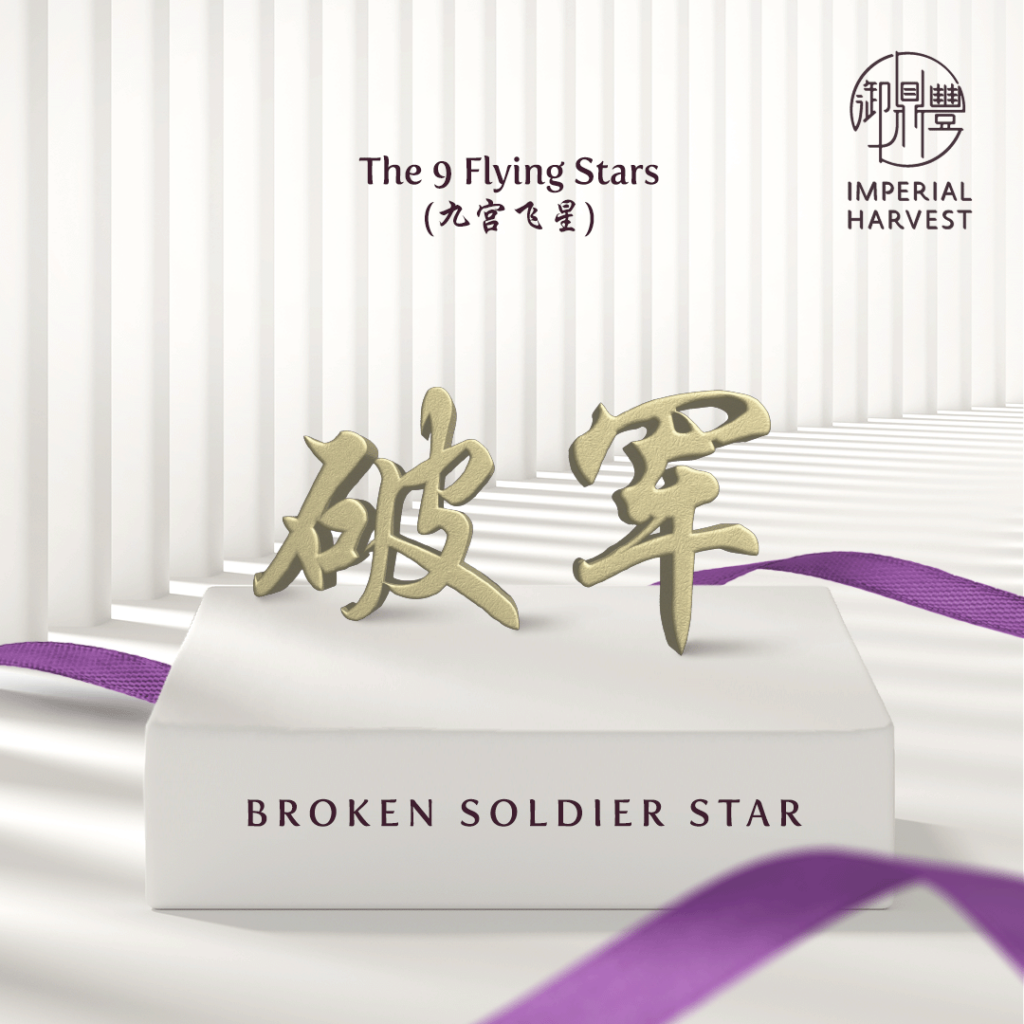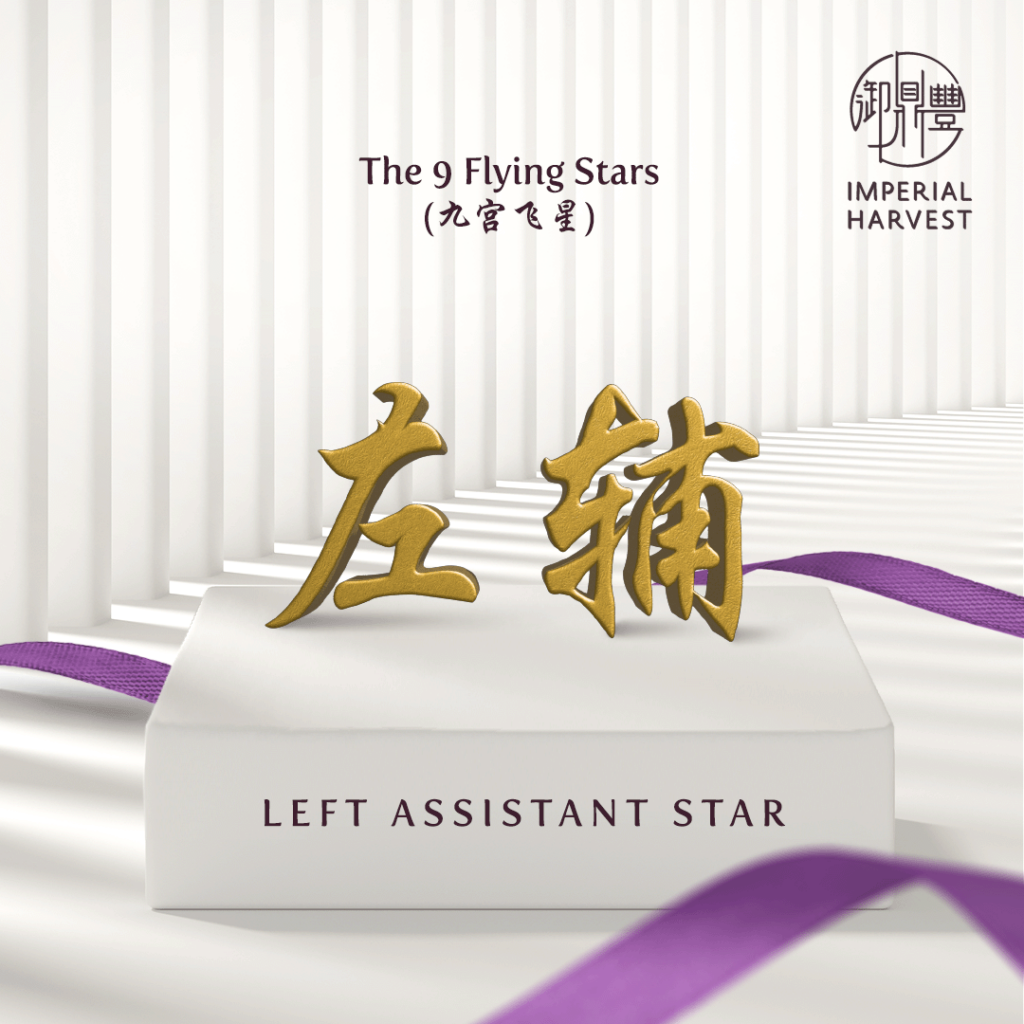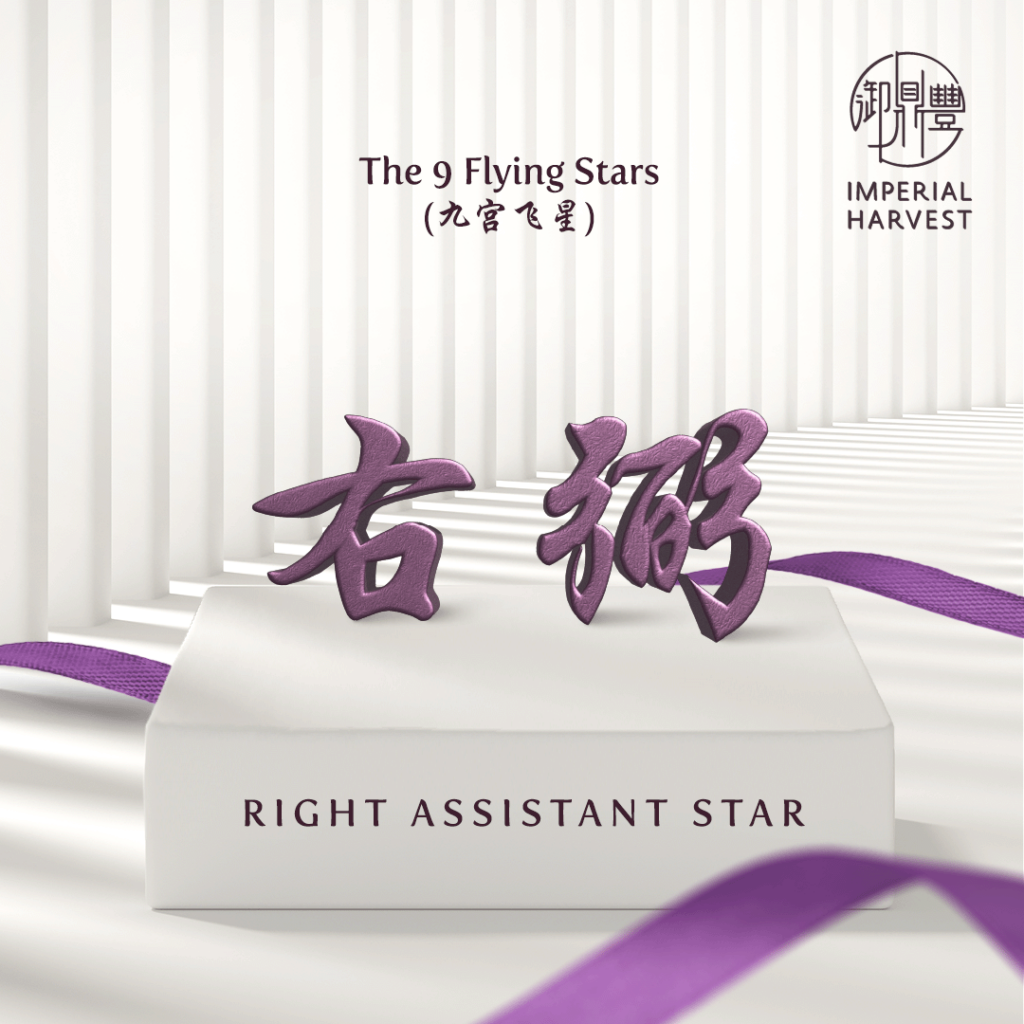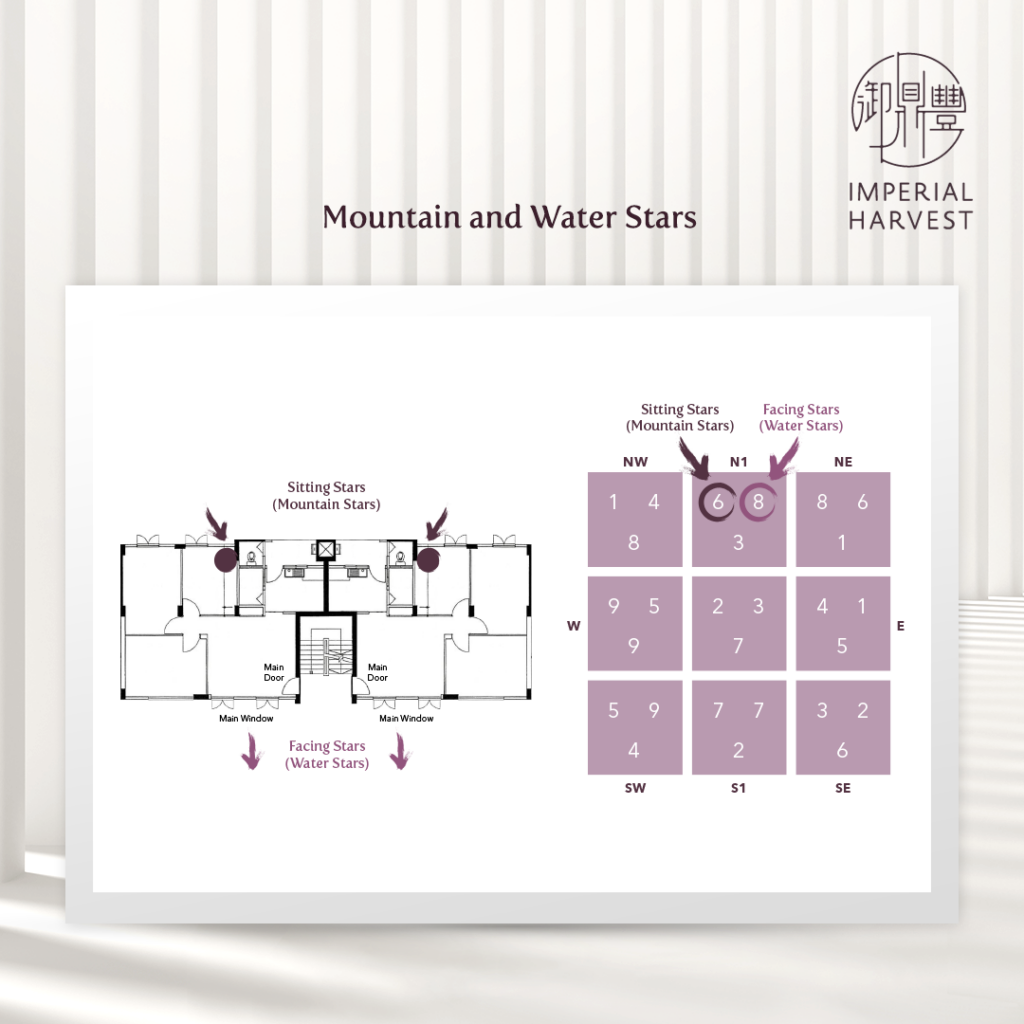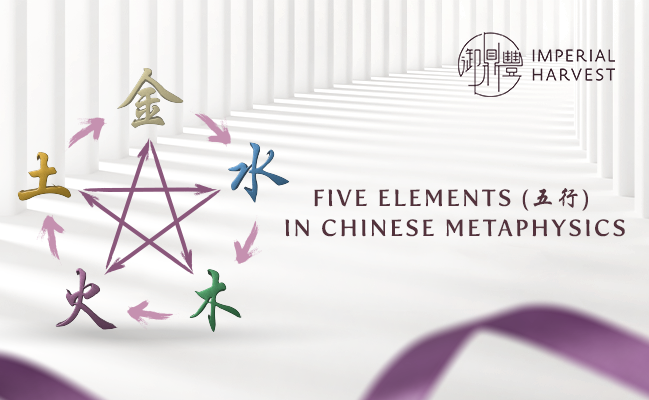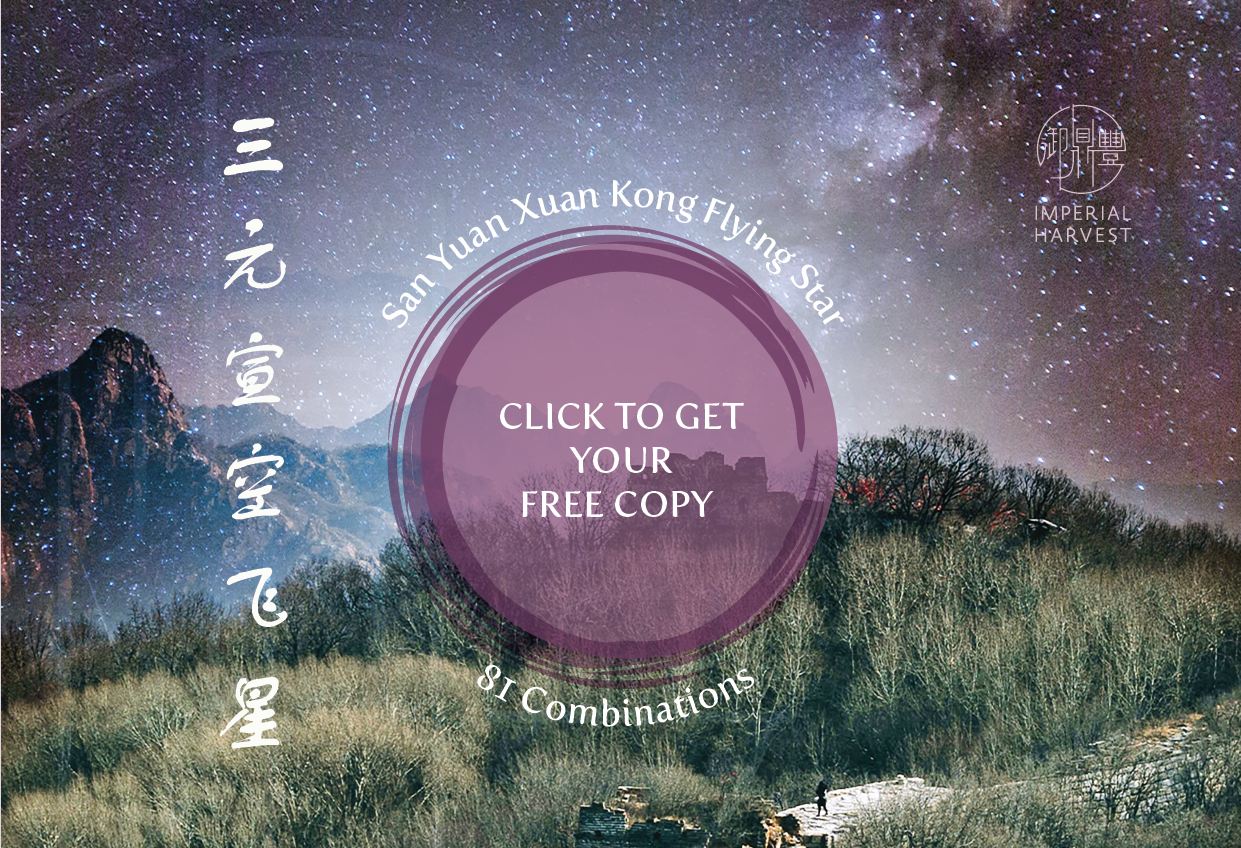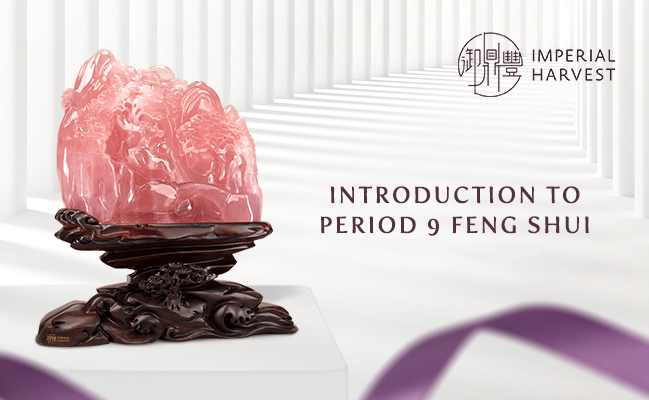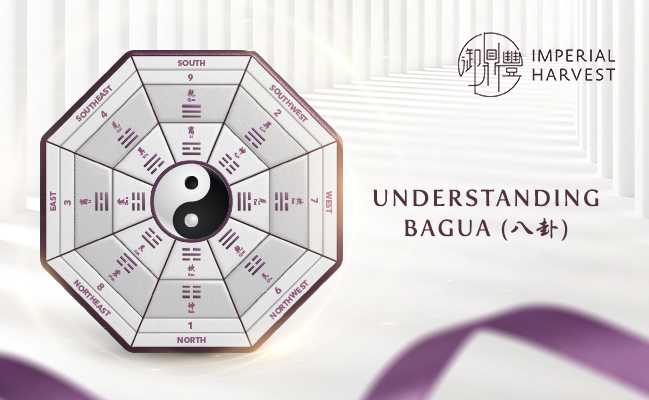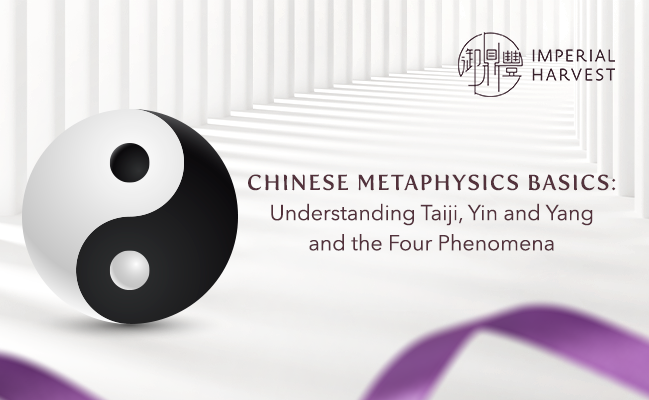Posted by Imperial Harvest on 27 October 2023
Estimated Reading Time: 4 mins
Xuan Kong Flying Star (三元玄空) is a time-honoured discipline in Imperial Feng Shui, integrating the principles of Yin and Yang, the interactions between the Five Elements, the Bagua, the Lo Shu numbers and the 24 Mountains.
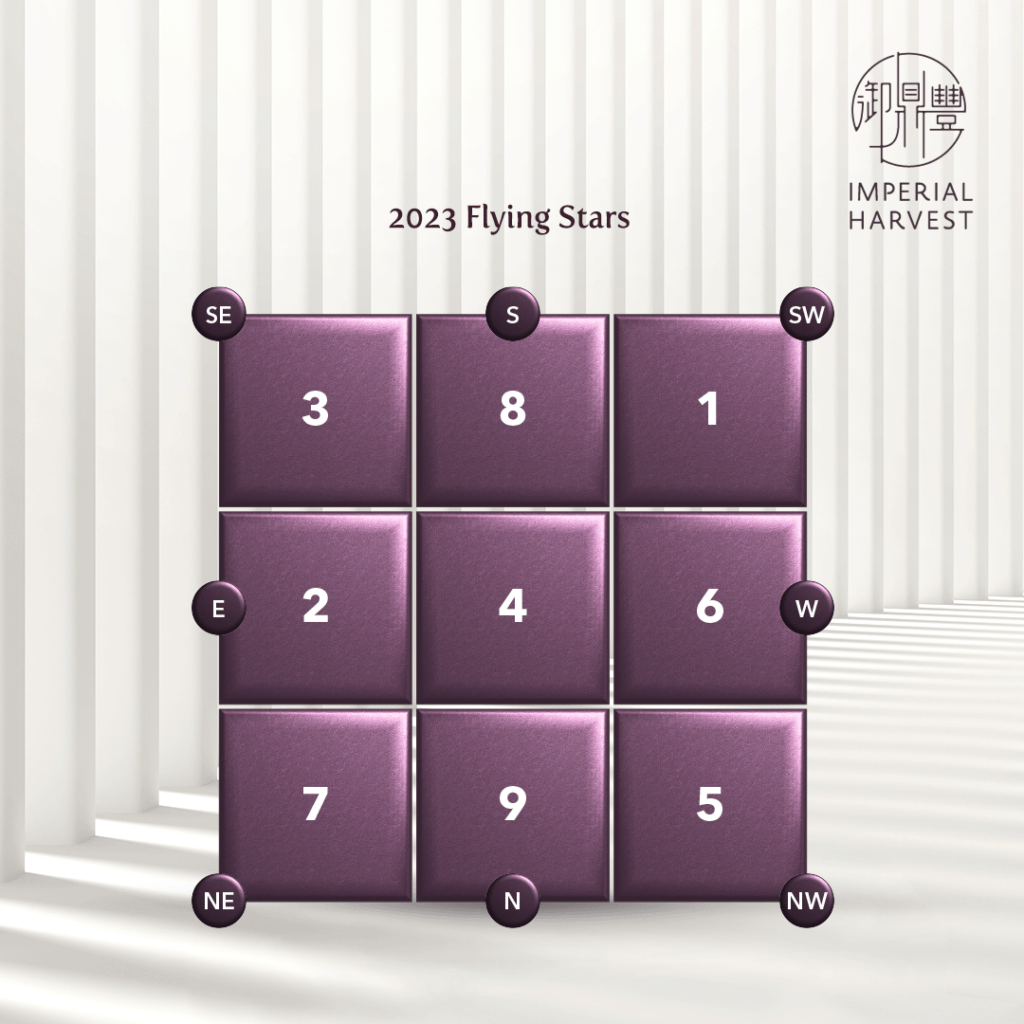
Distilling the wisdom from four distinguished Xuan Kong Flying Star classics — Flying Star Commentary (飞星赋), Purple White Scroll (紫白诀), Classics of Mystical Stars (玄机赋), and Secret Decree of Xuan Kong (玄空秘旨) — this method analyses the auspiciousness of a property space based on the influence of stars that belong to the Big Dipper constellation, which are each assigned a number.
Descriptions of the 9 Flying Stars
The 9 Flying Stars are Greedy Wolf Star (贪狼星), Huge Door Star (巨门星), Money Star (禄存星), Academic Star (文曲星), Sickness Star (廉贞星), Military Arts Star (武曲星), Broken Soldier Star (破军星), Left Assistant Star (左辅星) and Right Assistant Star (右弼星).
| Star | Period | Years | Element | Trigram | Direction |
|---|---|---|---|---|---|
| Greedy Wolf Star | 1 | 1864 to 1883 | Water | Kan | North |
| Huge Door Star | 2 | 1884 to 1903 | Earth | Kun | Southwest |
| Money Star | 3 | 1904 to 1923 | Wood | Zhen | East |
| Academic Star | 4 | 1924 to 1943 | Wood | Xun | Southeast |
| Sickness Star | 5 | 1944 to 1963 | Earth | - | Centre |
| Military Arts Star | 6 | 1964 to 1983 | Metal | Qian | Northwest |
| Broken Soldier Star | 7 | 1984 to 2003 | Metal | Dui | West |
| Left Assistant Star | 8 | 2004 to 2023 | Earth | Gen | Northeast |
| Right Assistant Star | 9 | 2024 to 2043 | Fire | Li | South |
Star 1: Greedy Wolf Star (贪狼星)
The Greedy Wolf Star, also known as Tan Lang (贪狼星) in Chinese metaphysics, is an elemental representation of Water. As such, this star holds positive connotations, given water’s association with wealth and prosperity in Imperial Feng Shui.
Positioned as the first star, the Greedy Wolf Star symbolises the onset of fresh beginnings and is particularly advantageous for individuals undergoing challenging phases of their lives. This star is also linked to qualities such as intelligence, innovation, business acumen and an entrepreneurial spirit, making it a multifaceted and auspicious symbol in the realm of Chinese metaphysics.
Star 2: Huge Door Star (巨门星)
The second of the nine Flying Stars, known as the Huge Door Star or Ju Men (巨门星) in Chinese metaphysics, is characterised by its variable effects, which depend on the timing and circumstances in which it appears.
During unfavourable periods or when it manifests as an annual star, the Huge Door Star can bring illness to the household, particularly affecting women. However, when this star aligns favourably, it possesses the potential to bestow substantial wealth and fortune, especially to those in industries related to land and real estate — making this star a complex and dynamic element in Chinese metaphysics.
Star 3: Money Star (禄存星)
The Money Star, known as Lu Cun (禄存星), carries a contradictory nature to its name. It is classified as a conflict star, igniting confrontations in its environment. Additionally, its influence may indicate difficulties in financial management for a household. This star’s influence can lead to disharmony and misunderstandings, resulting in domestic conflicts, arguments, legal disputes and workplace issues — making it a potentially disruptive force in various aspects of life.
Star 4: Academic Star (文曲星)
The Academic Star or Wen Qu Star (文曲星), corresponds with the element of Wood and holds great significance in the realms of academia and knowledge. Contrary to superstitions surrounding the number 4, the Academic Star is highly desirable in Imperial Feng Shui.
When properly activated, the Academic Star positively influences various aspects of life, including intelligence, creativity, academic performance and accomplishments. Its influence extends to romance and relationships, making it a favourable force in the pursuit of both intellectual and emotional fulfilment.
Star 5: Sickness Star (廉贞星)
The Sickness Star, referred to as Lian Zhen (廉贞星) in Chinese metaphysics, is a notorious star among the 9 Flying Stars. It is considered the most ominous star, primarily associated with the potential for illness and grave misfortune.
However, the Sickness Star can bring luck and positive outcomes during its period of timeliness. Otherwise, it is highly undesirable and necessitates constant management to ward off misfortune. Whether it assumes the role of a Water Star (Facing star) or a Mountain Star (Sitting star), the presence of the Sickness Star can usher in turbulent times for residents unless its negative effects are mitigated.
Star 6: Military Arts Star (武曲星)
Also known as the Wu Qu Star (武曲星), the Military Arts Star symbolises career advancement. When activated, it has the potential to usher in wealth and prosperity for the family, as it can manifest advancements in power and authority levels within the workplace.
On the other hand, when negatively influenced, the Military Arts Star can lead to issues stemming from an excess of aggressive masculinity, potentially causing problems in various aspects of life.
Star 7: Broken Soldier Star (破军星)
Corresponding with the seventh period in the Feng Shui cycle, the Broken Soldier Star, also known as Po Jun (破军星), is characterised by its aggression. It tends to be a negative star, representing conflicts within the household.
When negatively influenced, this star contributes to issues such as robberies, loss of property, theft and violence — underscoring the importance of managing this star.
Star 8: Left Assistant Star (左辅星)
The Left Assistant Star, known as Zuo Fu 左辅星, symbolises prosperity and wealth. It is an auspicious star associated with the Earth element, signifying wealth, nobility and integrity, making it a highly favourable one for promoting financial prosperity and well-being.
Star 9: Right Assistant Star (右弼星)
The Right Assistant Star is also known as You Bi (右弼星) in the realm of Chinese metaphysics, corresponding with Period 9 of the Feng Shui cycle. This star is associated with the element of Fire, making it the sole representative of this element among the 9 Flying Stars.
This star is known for its ability to bring recognition, status and authority. It is also associated with spirituality and metaphysics. Its unique nature as the sole Fire-elemental star allows it to nurture the other Earth-element stars, contributing to its reputation as an auspicious star in Chinese metaphysics.
Activating Auspicious Flying Stars
Imperial Feng Shui places great emphasis on the concept, “山管人丁,水管财” — translated as “Mountains govern benefactors, authority, and harmony, while Water governs wealth, opportunities, and intuition.” Imperial Feng Shui philosophy views mountain landforms as symbolic of Yin energy, while water represents its complementary force, Yang. As such, this fundamental principle becomes central in understanding Imperial Feng Shui, highlighting the crucial role of achieving balance for success in life.
This is further illustrated by the concept of “Dao Shan Dao Xiang” (到山到向), which refers to a situation in which the Sitting Star aligns with the sitting sector of a property, and the Facing Star corresponds to the facing sector.
Following the previously mentioned principle in Imperial Feng Shui, the position of these stars is significant in planning out your space. The Sitting Star’s alignment signifies favourable relationships, including benefactor support, while the Facing Star’s position indicates auspiciousness in terms of wealth and opportunities. As such, this alignment of stars is considered highly desirable in Imperial Feng Shui, signifying the most auspicious arrangement.
Plotting the Flying Star Chart for Your Home
To plot the Flying Star chart of your home, you must first determine two crucial pieces of information:
- Determine the Period of the House: The date of completion is usually used to determine the Period of the House. For example, a house completed in 2010 would belong to Period 8.
- Determine the Facing Direction of the House: While this is often determined using a professional Feng Shui compass, you may also use compass apps on your smart devices. You may determine the facing direction by situating your device flush against your front door.
Once you have this information, input the Period and the Facing Direction of your house in Imperial Harvest’s Flying Star Calculator to generate the Flying Star chart for your home. This chart can help you to analyse and understand the energy influences in different areas of the home and provide clearer insight into applying the appropriate Imperial Feng Shui principles.
Imperial Harvest’s expert consultants are always on hand to guide you on your journey and provide you with insights to help you realise your fullest potential. Book a complimentary consultation today or contact us at +65 92301640.
We are located at
For prospective clients: Imperial Harvest402 Orchard Road
Delfi Orchard #02-07/08
Singapore 238876 For existing clients: Imperial Harvest Prestige
402 Orchard Road
Delfi Orchard #03-24/25
Singapore 238876
Most Read Articles
Get to read our life changing articles and get inspired.
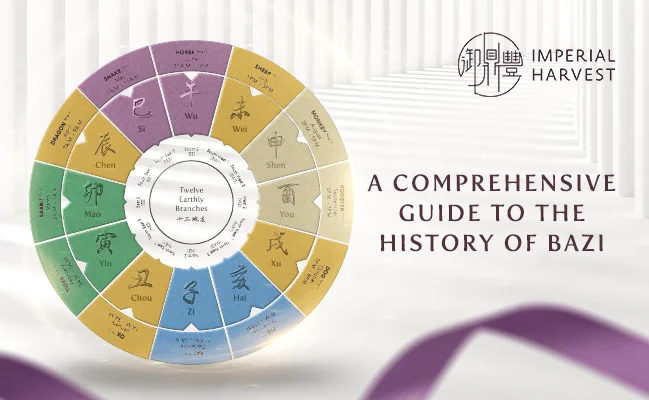
A Comprehensive Guide to the History of Bazi (八字)
Estimated Reading Time: 5 mins Bazi (八字) is often mistakenly assumed as the Chinese counterpart of western Astrology. The similarities between both systems lie in their utilisation of birth dates and time in their calculations, and the ability to be read from a tabulated chart. Where Astrology may take into account the positions of different […]
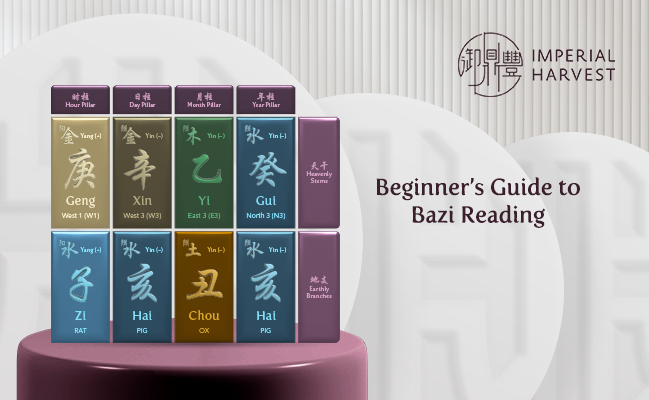
Beginner’s Guide to Bazi Reading
Estimated Reading Time: 5 mins Bazi (八字), or the Four Pillars of Destiny, is a multidisciplinary study in Imperial Feng Shui. It encompasses a well-developed set of metaphysical principles based on planetary influences, the duality of Yin and Yang, and the Five Elements. What is a Bazi Reading? Bazi is an intricate discipline within Imperial […]
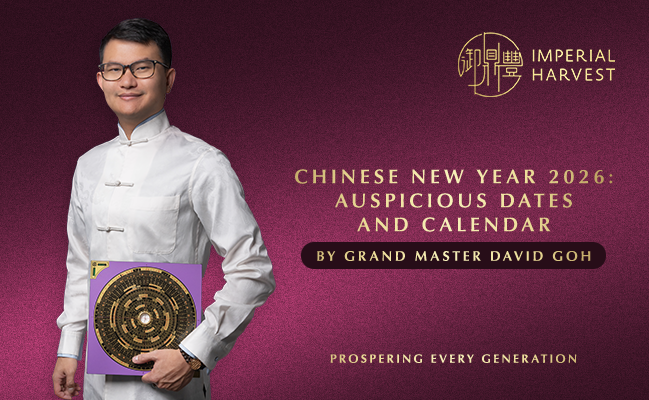
Chinese New Year 2026: Auspicious Dates and Calendar
Imperial Feng Shui Date Selection by Grand Master David Goh In Chinese metaphysics, success is not determined by effort alone — timing is equally decisive. 2026 marks the Year of the Crimson Horse, a year characterised by strong Fire energy, speed, visibility, and decisive movement. It is a year that rewards bold action and leadership, […]
